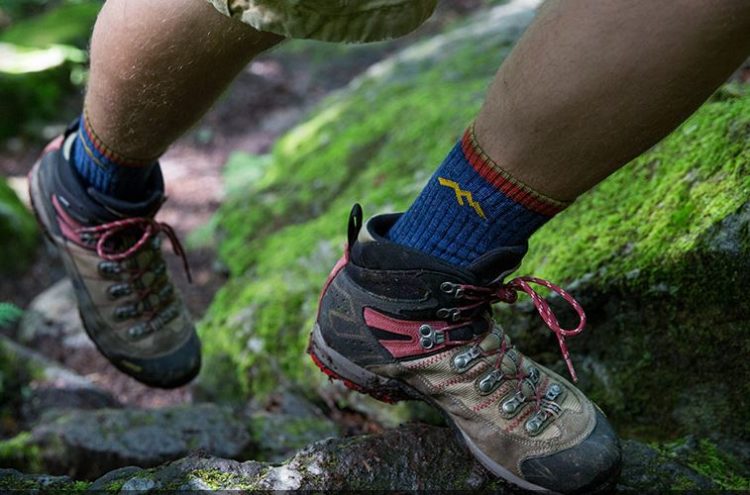One of the most frequently asked questions we get, from those of you who are about to embark on a career in Special Operations, concerns rucking and how to best prepare to hoist the big green pain pill around our southern military bases.
We have written countless times about proper fitting boots and socks and how important those two pieces of equipment are in passing Selection and moving on to your various qualification courses. And in the never-ending search for building a better mousetrap, we’re still looking for an edge, even though our days of serious rucking and operating are well behind us.
Although I suffer from chronic back and knee pain, (courtesy of time in Special Operations), I still enjoy going out with a rucksack on some of the trails around my area — although the weight and pace of said rucks is decidedly less than the days of yore.
On a short hike not long ago, I chatted with an older gentleman who is a serious long-distance backpacker and has traveled the length of the Appalachian Trail from Maine to Georgia. As we walked along, we got on a discussion about boots and socks, and we compared notes. We both liked different boots for different applications from light hiking/day hikes, to heavy-duty long-distance rucks over varied terrain.
When it came to socks, however, my new companion mentioned a sock brand that I had never heard of. He said that he discovered it about five years ago and hasn’t worn anything else since. “Fine says I, what brand would this be?”
The brand was Darn Tough. The name immediately got my attention. They’re made in Vermont and get this… they come with a lifetime guarantee. The company has been around since about 2013 and they make some great quality socks.
The ones he was wearing, and I ended up purchasing, were the “Darn Tough Light Hiker Micro Crew Light Cushion Socks.” They are the best rucking socks I’ve ever worn — and I’ve put some miles on my feet. The socks made from 47 percent Merino Wool, 46 percent Nylon, and 7 percent Lycra Spandex. The particular type I bought is very lightly cushioned, although the company manufactures several different varieties with more cushioning, if you prefer that.
You can shop Darn Tough’s collection of hiking socks, here.
One of the things I’ve noticed is that if I wear socks that are too cushioned, it will slightly change the way my boots fit. And for someone who has the tendency to get “swamp foot,” this makes my feet sweat more.
So, after buying a pair and testing them out, I quickly found that they are really comfortable and they hold their shape. To test their durability and sweat-wicking properties, I wore them several days in a row and lo and behold… they didn’t stink.
Passing near a small stream, rather than stepping on rocks to avoid the water, I purposely stepped in water to get them soaked. In about an hour the socks were dry.
Already have an account? Sign In
Two ways to continue to read this article.
Subscribe
$1.99
every 4 weeks
- Unlimited access to all articles
- Support independent journalism
- Ad-free reading experience
Subscribe Now
Recurring Monthly. Cancel Anytime.
One of the really neat features of these socks is that they are very tightly knitted — which is why they have a life guarantee. The company has purchased these special knitting machines from Italy and their socks feature a true seamless toe: No more turning the socks inside out when wearing them on a ruck.
I was originally going to hold on to this piece until mid-summer or fall. By that time, hopefully, the hiking season will be in full swing and the coronavirus pandemic will have eased up somewhat to allow people to get outdoors more.
But I saw that the Marine Corps was in the market for a new combat boot sock and this one would be perfect for the troops.
For those of you training for Selection, do yourself a favor and try out a pair of Darn Tough socks. Your feet will thank you for it. They have the comfort, durability, and versatility blocks checked. They are a bit pricier than the average sock, but if you are going to ruck hundreds of miles in preparation for Selection and then go even further, aren’t your feet worth it? Plus they’re made in the U.S.










COMMENTS